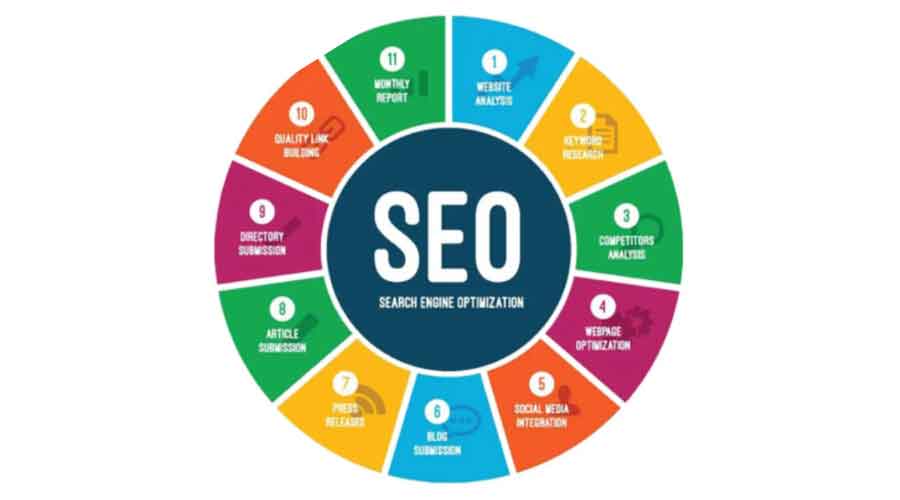Introduction To SEO
Search Engine Optimization (SEO) is the process of increasing the quantity and quality of organic or non-paid traffic to any website by increasing the website's visibility in major search engines. It is the cobination of technical along with creative elements that are used to improve awareness to search engines regarding the presence of a specific website and thus improve its ranking in those search engines and drive traffic.
Search engines use website crawlers also called bots or spiders to crawl through all the websites and contents available on the internet and gather information to build index. The same index is then applied through some algorithms to display data whenever a user searches for something in those search engines. And, that's where a lot of elements like the terms, phrases and contents on the website, structure, internal links, links from other authoritative websites along with the user experience to name a few, determine any website's ranking. Here's the overview of a website's ranking factors according to the search engines.

Optimization plays a vital role behind the scenes to make sure those search engines understand what's in the pages and rank them as well as list them with relevant queries to increase traffic to the site.
Why SEO is needed?
Although social media has the ability to generate a huge amount of traffic to any website, search engines are still the primary source of navigation for most of the internet users. They provide targeted trafficto any website either it's a service based website or product based or simply blogs. If search engines are unable to find a website and update the contents from that site in their database, the website's loosing a huge amount of traffic each day. SEO provides publicity, exposure and even revenue to the website owners more than any other marketing channels.
Isn't it possible for a website to be found out by search engines without SEO?
The search engines are progressive and always look for technologies to crawl the web more deeply and gather information as much as possible to be able to display quality results to the users, but still, there are some limitations to their functioning patterns and they need help. A website's visibilty becomes minimal without SEO and the users too don't tend to go behind the first few pages of the search results. SEO can make a website distinct among others for its contents and features and help them rank higher on search results in a relatively short phase of time.
SEO Factors
Working on the SEO part of a website means takeing care of a lot of factors that can help the website's ranking in search engines. These factors can broadly be grouped into a few groups.
Technical Factors
Technical factors collectively work on optimizing the website itself. It basically takes care of the domain name and extension, keywords, HTML elements in a page, url length, website loading speed, file sizes, server security, etc. All these components and their right mix helps to develop a SEO friendly website. They are not only essential to increase the search ranking but also to get into the search engine result pages.
Page Speed
This SEO factor works on reducing the page loading time. It takes care of cache configuration, preventing render blockages, improving server response time, Optimization of associated file and image sizes, etc. These factors take a website to even higher rankings.
Search Index
This factor deals with the part of creating website sitemaps and submitting them to major search engines. It helps the search engines to know a specific website with specific information is present online. It also deals with adding analytics to the website to get accurate details about the visitors and their preferences on a site.
User Experience
This factor deals with the website contents related to the user experience. It's all about the user friendly navigations, responsive designs, infographics, font types and sizes determination, interactive elements, etc to increase a visitors stay on the site and reduce bounce rate.
Keyword Research
This factor deals with the research, planning and validation of keywords for any website pages to make it prominent among others in the search result pages.
Negative SEO
This factor deals with the negative SEO practised by competitiors, avoiding bad backlinks, content duplication, etc that might adversely affect a wesite's ranking in search engine result pages.
Leave a comment